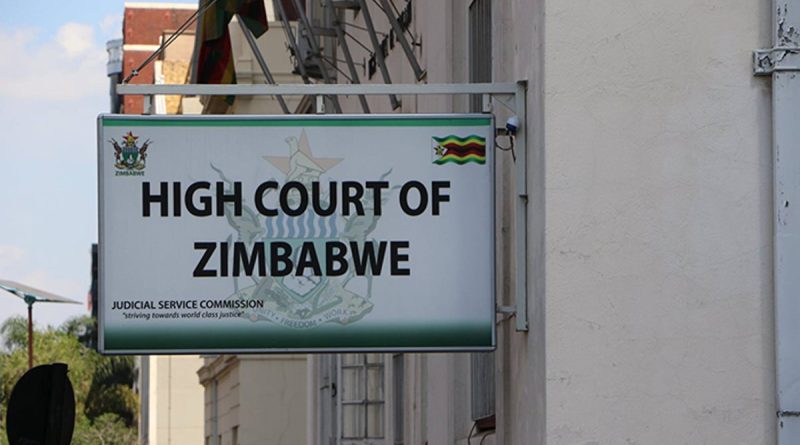High Court reopens family’s feud hearing over the 2019 jackpot win by late sister
The High Court has reopened a bitter family battle over a multimillion-dollar lottery windfall after granting rescission of a default judgment against three members of the Sakala family, ruling that the dispute be heard on the merits.
The case stems from a 2019 jackpot win by the late Agnes Sakala, who shared her winnings with relatives through cash, houses, and vehicles.
The beneficiaries, including Heather Magodyo and brothers Prosper and Henry Sakala, insist the transfers were “outright gifts”, but Agnes later claimed they were loans that should be repaid — triggering a lawsuit that has torn the family apart.
The applicants failed to attend the initial hearing in October 2024 after their lawyers abandoned the case, leading the court to rule in favour of respondent Oliver Masomera (in his capacity as the appointed executor dative of the Estate Late Agnes Sakala DR 3480/23).
But Justice Joel Mambara, sitting at the Harare High Court, overturned that outcome, stressing that the default judgment had been unjust.
“Denying the applicants the opportunity to be heard could result in an injustice,” the judge said.
“There is nothing in the applicants’ conduct to suggest that they freely took the decision to refrain from appearing.”
The judge also rejected arguments by the respondents that the Sakalas were negligent and had wilfully defaulted. “The explanation they have offered is adequate,” Mambara ruled, citing a communication breakdown caused by changes in legal representation.
Central to the rescission was whether the disputed transfers were gifts or loans — a question the court said required a full trial.
“A court is naturally reluctant to let a judgment stand against someone who insists they have a valid defence and who was not heard due to a mishap,” Justice Mambara noted.
“The justice of the case clearly favours letting this matter be heard on the merits,” Mambara concluded.
The matter will now proceed to trial, with significant implications for how courts interpret family transactions tied to sudden wealth, such as lottery winnings.
The underlying dispute between the parties arises from a family financial transaction.
The late Agnes Sakala (the first respondent) came into a significant sum of money after winning a lottery in 2019.
She shared a portion of her winnings with members of her family, including the late Mr. Aaron Sakala and his family, who are the applicants herein, by way of gifts of money, houses, and motor vehicles. In particular, the first applicant states that the money given to her family was not a loan but an outright gift, and thus no repayment was ever expected.
Sometime later, a dispute arose when the first respondent claimed entitlement to repayment or to certain property, treating what was given as a loan rather than a gift.
This led him to issue a summons against the applicants.
The applicants duly entered an appearance to defend the action, as they maintain that the first respondent’s claim is without merit.
The matter did not proceed to trial promptly.
According to the first applicant, the case lay dormant for an extended period after pleadings.
Crucially, the legal practitioner who had been handling the matter for the first applicant left the law firm which was handling this matter during this lull and failed to transfer or properly hand over the case file to any other practitioner in the firm.
Meanwhile, the second and third applicants (Prosper and Henry Sakala) were being represented by a different law firm.
At the time the action was commenced, the second and third applicants were minors, and they had little to no direct contact with their lawyer. They allege they were never informed of any hearing date by that lawyer.
In October 2024, the first respondent set the matter down for a default judgment hearing on the unopposed roll.
Notice of the set down was served, but due to the above circumstances, none of the applicants nor their legal representatives became aware of the hearing.
The first applicant’s former lawyer was no longer at his firm, and no one there was actively handling the file.
The other applicants’ lawyer, on the other hand, had not kept them informed and did not attend.
As a result, when the case was called on 21 October 2024, the applicants were in default of appearance.
The High Court (sitting in default) granted judgment in favour of the first respondent, thereby giving him the relief he sought in the action.
The applicants state that they only learned of the default judgment weeks later, when a relative privy to the court outcome informed them.
They moved with haste to engage new legal counsel and prepared this rescission application, which was filed in November 2024.
The application was thus made within one month of the applicants gaining knowledge of the default judgment, satisfying the temporal requirement of Rule 27(1).
The applicants also obtained a provisional stay of execution pending the determination of this rescission application, given that the default judgment involved the transfer of substantial assets.




